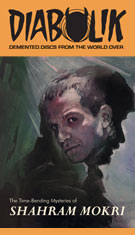
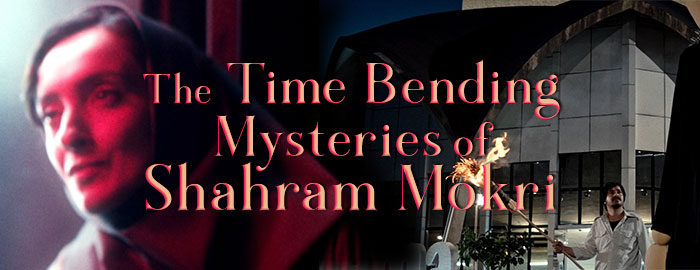
ASHKAN, THE CHARMED RING & OTHER STORIES
B&W/Color, 2008, 89 mins. 44 secs.
Directed by Shahram Mokri
Starring Saeed Ebrahimifar, Sina Razani, Hutan Mokri, Ali Sarabi, Baharan Bani Ahmadi
FISH & CAT
Color, 2013, 141 mins. 20 secs.
Directed by Shahram Mokri
Starring Babak Karimi, Saeid Ebrahimifar, Abed Abest, Mona Ahmadi, Saeed Ebrahimifar, Parinaz Tayyeb, Milad RahimiINVASION
Color, 2017, 99 mins. 32 secs.
Directed by Shahram Mokri
Starring Abed Abest, Elaheh Bakhshi, Esmaeil Gorji, Pedram SharifiCARELESS CRIME
Color, 2020,
135 mins. 51 secs.
Directed by Shahram Mokri
Starring Albofazl Kahani, Razieh Mansouri, Mohammad Sareban, Babak Karimi
Deaf Crocodile (Blu-ray) (US RA HD)
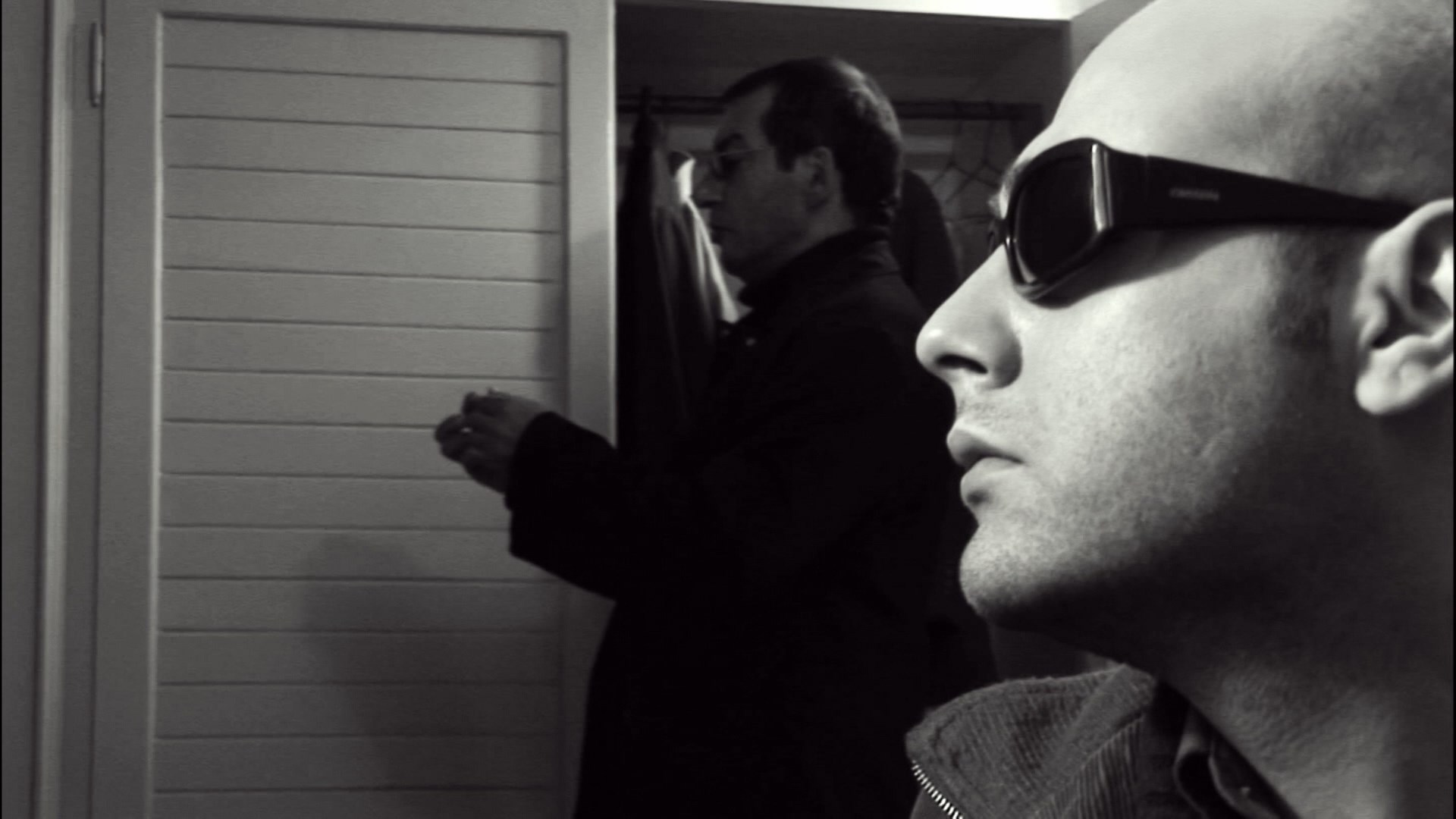 out to be a fairly accurate descriptor as each film more or less swerves into a different genre and plays out like a sort of digital era collision between
out to be a fairly accurate descriptor as each film more or less swerves into a different genre and plays out like a sort of digital era collision between 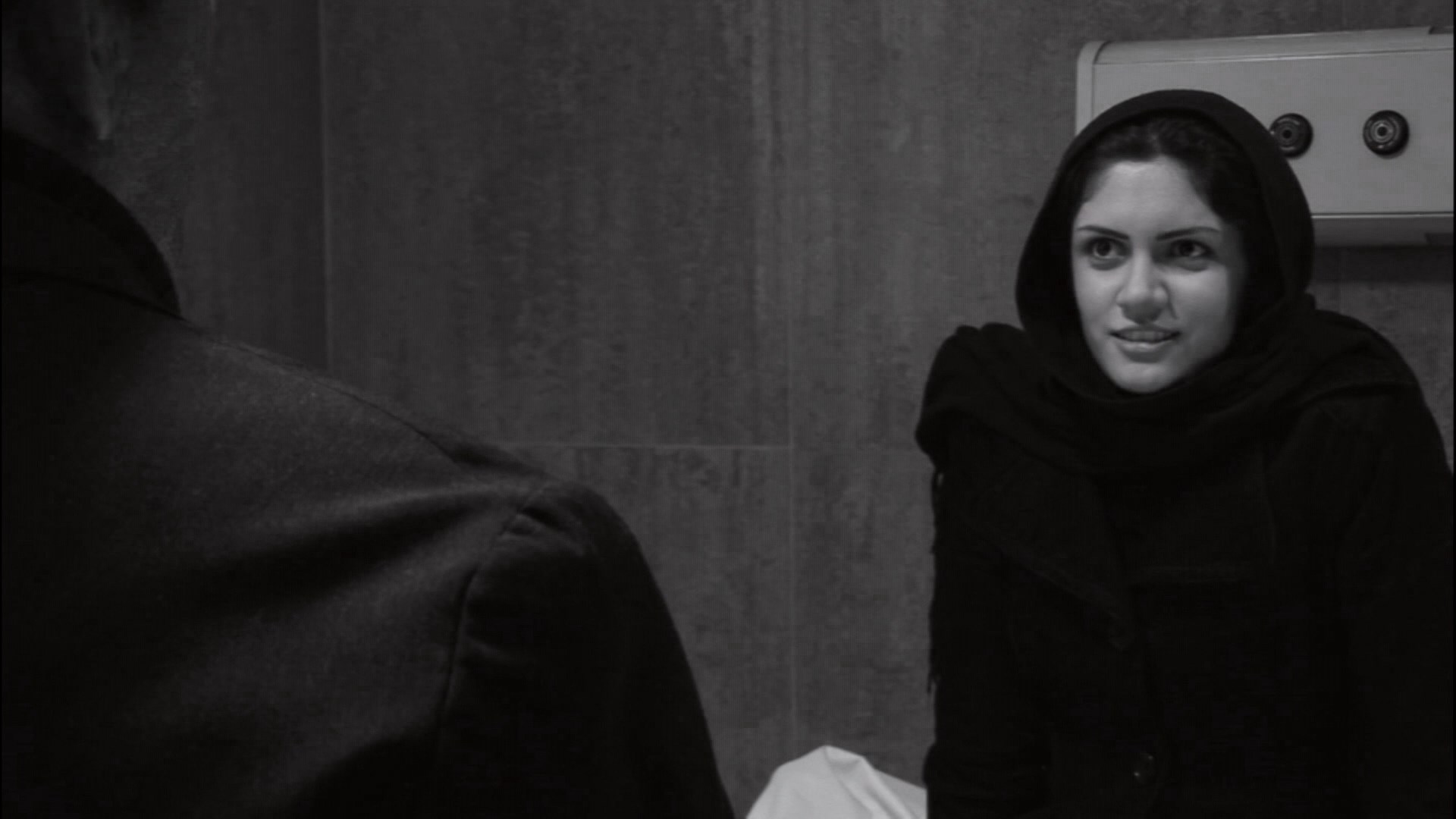 Raúl Ruiz and Béla Tarr without being overly indebted to anyone in particular. Long camera takes, a hypnotic tone, and unpredictable manipulations of time within the narrative space are the most obvious characteristics of his four features to date, which should probably be viewed in chronological sequence here for maximum effect.
Raúl Ruiz and Béla Tarr without being overly indebted to anyone in particular. Long camera takes, a hypnotic tone, and unpredictable manipulations of time within the narrative space are the most obvious characteristics of his four features to date, which should probably be viewed in chronological sequence here for maximum effect.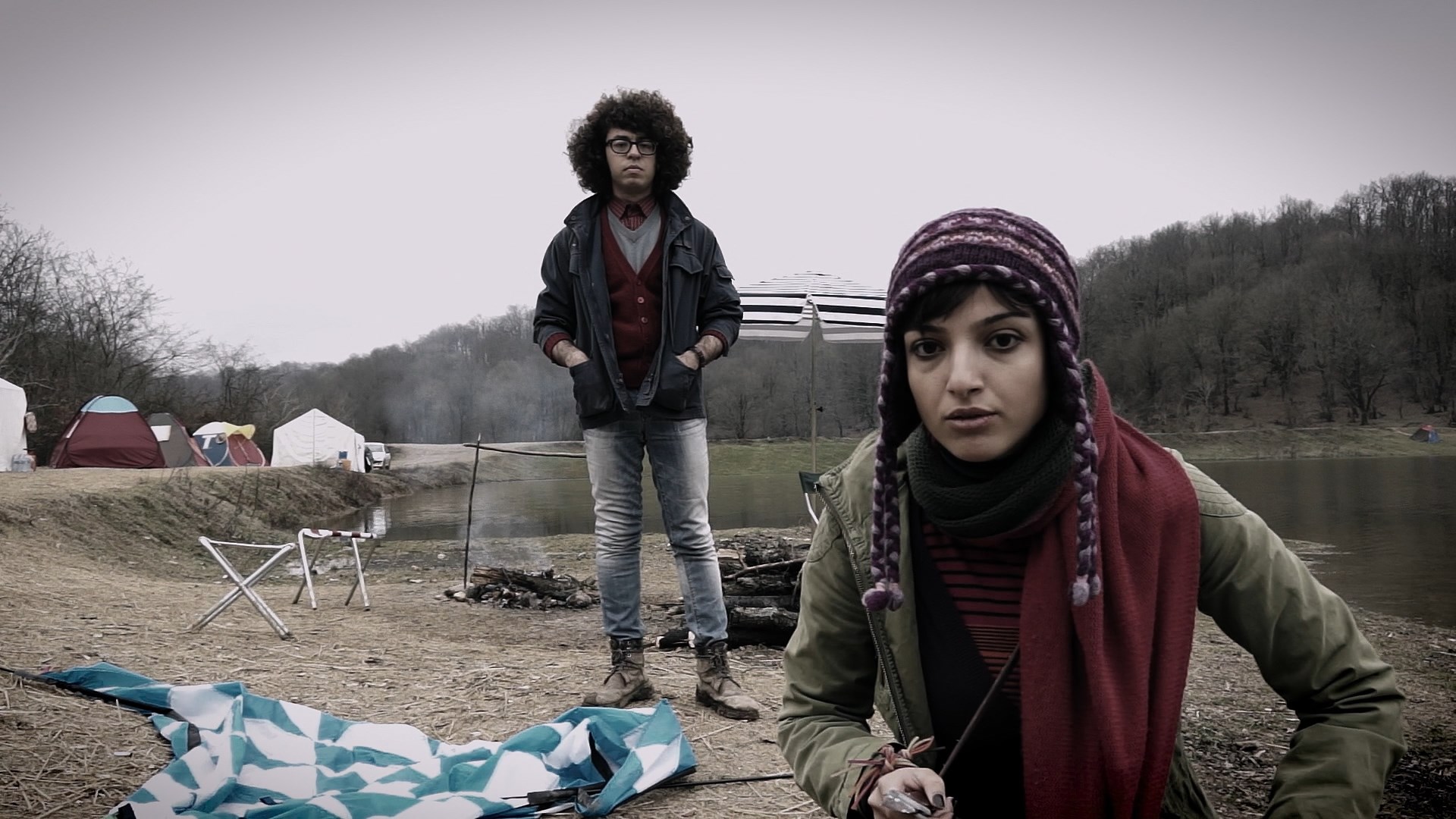 His second film (and likely the biggest draw here for horror fans) is Fish & Cat, which tends to get classified
His second film (and likely the biggest draw here for horror fans) is Fish & Cat, which tends to get classified 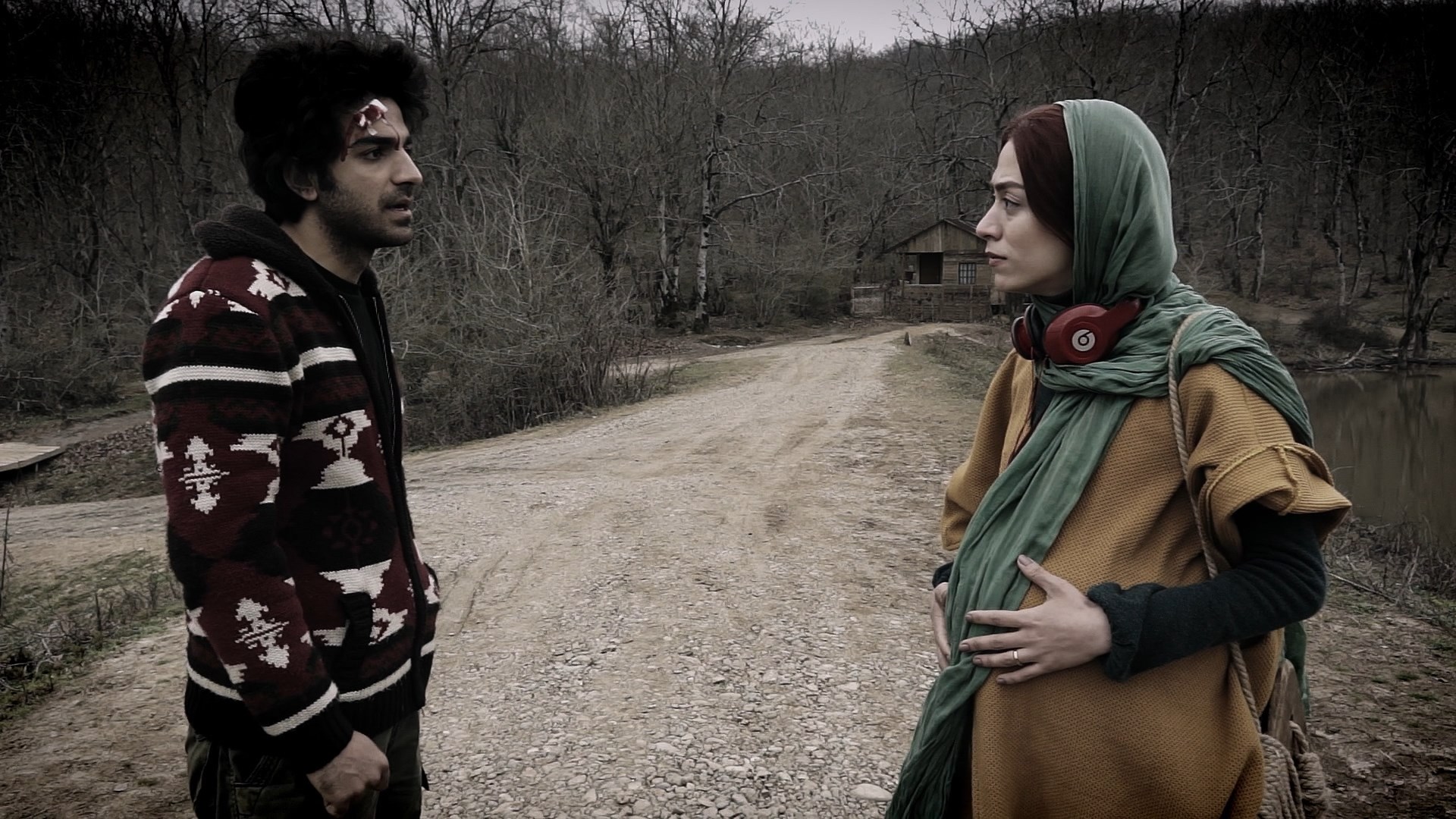 as a slasher film more for its overall theme than anything seen on screen. It also could be categorized as a backwoods cannibal film thanks to the opening crawl informing us that the proprietors of a rundown restaurant were convicted of serving human flesh, which ties in to the single-take feat here as we follow a group of students stopping off in the countryside on the way to a kite-flying contest. They ask for directions from the men who run a restaurant shack but decline to eat a meal there, after which they head over to a nearby lake and split up into smaller groups. Narration and wild in-camera flashbacks (including multiple perspectives on the same vent) soon follow as the kids chatting about their feelings, hopes, and dreams, often on long walks as they're being circled by the dysfunctional locals. Featuring truly incredible cinematography by Mahmoud Kalari (A Separation), this is a hypnotic and ultimately jaw-dropping feat juggling dense visual storytelling with performances that somehow never miss a beat with the film never cutting for well over two hours. The effective sound mix is just as important with an eerie music score drifting along with the natural sounds to create a soundscape that sucks you in as the narrative suddenly shifts from one set of characters to the next. The quality here is better than the prior film simply because of the higher technical merits and quality of the master, which appears to be in immaculate shape and features an extremely active DTS-HD MA Persian 2.0 surround track.
as a slasher film more for its overall theme than anything seen on screen. It also could be categorized as a backwoods cannibal film thanks to the opening crawl informing us that the proprietors of a rundown restaurant were convicted of serving human flesh, which ties in to the single-take feat here as we follow a group of students stopping off in the countryside on the way to a kite-flying contest. They ask for directions from the men who run a restaurant shack but decline to eat a meal there, after which they head over to a nearby lake and split up into smaller groups. Narration and wild in-camera flashbacks (including multiple perspectives on the same vent) soon follow as the kids chatting about their feelings, hopes, and dreams, often on long walks as they're being circled by the dysfunctional locals. Featuring truly incredible cinematography by Mahmoud Kalari (A Separation), this is a hypnotic and ultimately jaw-dropping feat juggling dense visual storytelling with performances that somehow never miss a beat with the film never cutting for well over two hours. The effective sound mix is just as important with an eerie music score drifting along with the natural sounds to create a soundscape that sucks you in as the narrative suddenly shifts from one set of characters to the next. The quality here is better than the prior film simply because of the higher technical merits and quality of the master, which appears to be in immaculate shape and features an extremely active DTS-HD MA Persian 2.0 surround track.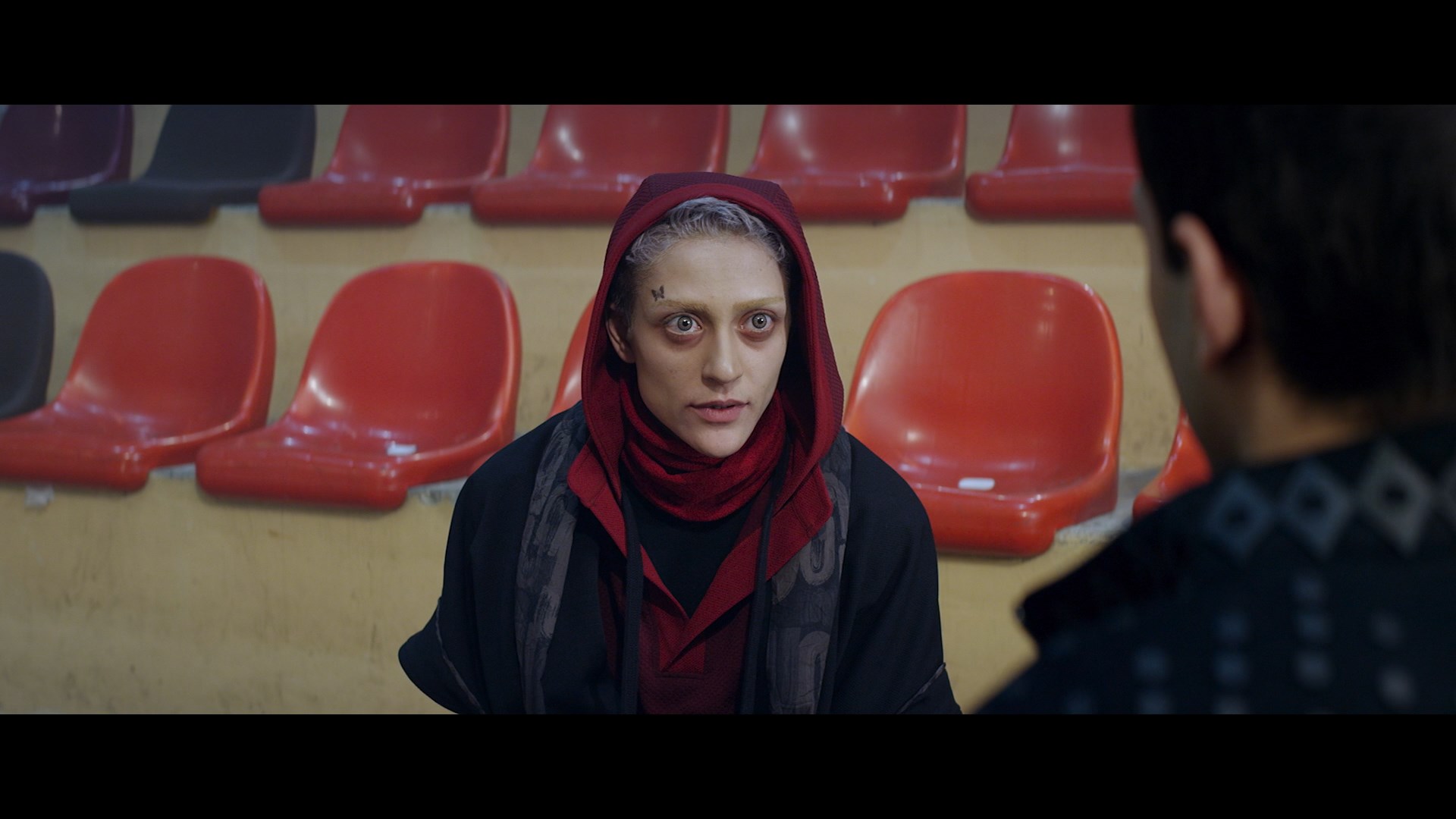 Then we turn to another single-take experiment, Invasion,
Then we turn to another single-take experiment, Invasion, 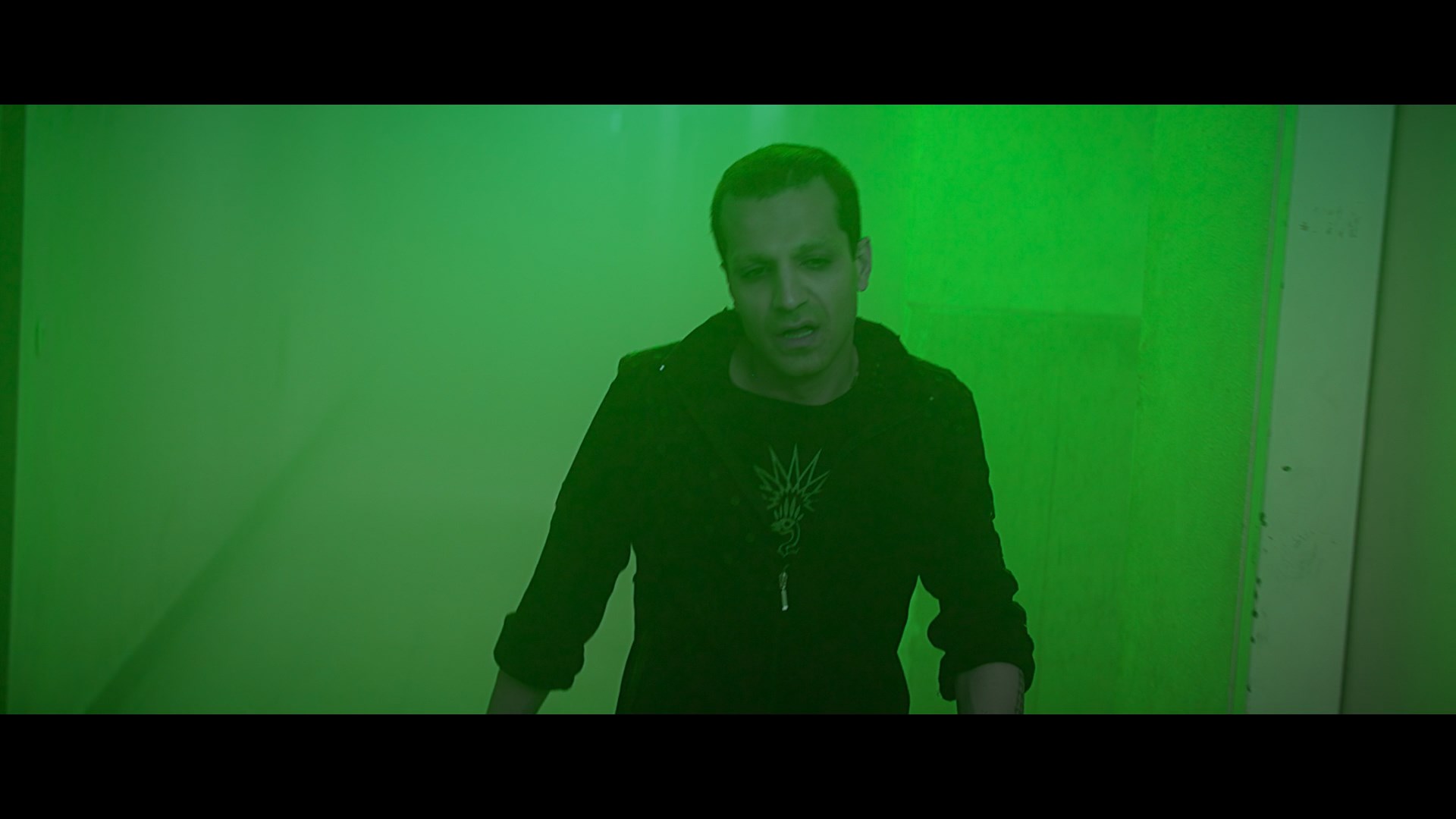 which also centers around an isolated group dealing with a threat -- in this case with a vaguely futuristic setting involving a soccer-style sports team. Player Ali (Abest) is suspected of the death of a teammate and plans to confess, with all of them confined inside a stadium as the eclipsed world outside deals with a contagion. As it turns out his supposed victim, Saman, may have been a kind of vampire feeding on human blood, and now his twin sister (Bakhshi) is on the scene to continue their weird symbiotic relationship. Here Mokri switches to 2.35:1 framing with his camera gliding around the set in some insanely acrobatic patterns as the film once again blurs the lines between past and present (or even conjecture versus reality), this time injecting a heavy dose of color symbolism with a sickly lime green lighting echoing the fear of what lurks outside in the world at large. Trying to label this as any particular genre is a tricky task again as it constantly feels on the verge of turning into horror or dystopian sci-fi without quite tipping over either way; in execution it's more akin to something like Gaspar Noé's Climax or Alan Clarke's Stars of the Roller State Disco. Again the a/v quality here is as excellent as you'd expect for a film this recent with the candy dish of color schemes on display faring especially well, and the DTS-HD MA 5.1 Persian track is active and immersive throughout.
which also centers around an isolated group dealing with a threat -- in this case with a vaguely futuristic setting involving a soccer-style sports team. Player Ali (Abest) is suspected of the death of a teammate and plans to confess, with all of them confined inside a stadium as the eclipsed world outside deals with a contagion. As it turns out his supposed victim, Saman, may have been a kind of vampire feeding on human blood, and now his twin sister (Bakhshi) is on the scene to continue their weird symbiotic relationship. Here Mokri switches to 2.35:1 framing with his camera gliding around the set in some insanely acrobatic patterns as the film once again blurs the lines between past and present (or even conjecture versus reality), this time injecting a heavy dose of color symbolism with a sickly lime green lighting echoing the fear of what lurks outside in the world at large. Trying to label this as any particular genre is a tricky task again as it constantly feels on the verge of turning into horror or dystopian sci-fi without quite tipping over either way; in execution it's more akin to something like Gaspar Noé's Climax or Alan Clarke's Stars of the Roller State Disco. Again the a/v quality here is as excellent as you'd expect for a film this recent with the candy dish of color schemes on display faring especially well, and the DTS-HD MA 5.1 Persian track is active and immersive throughout.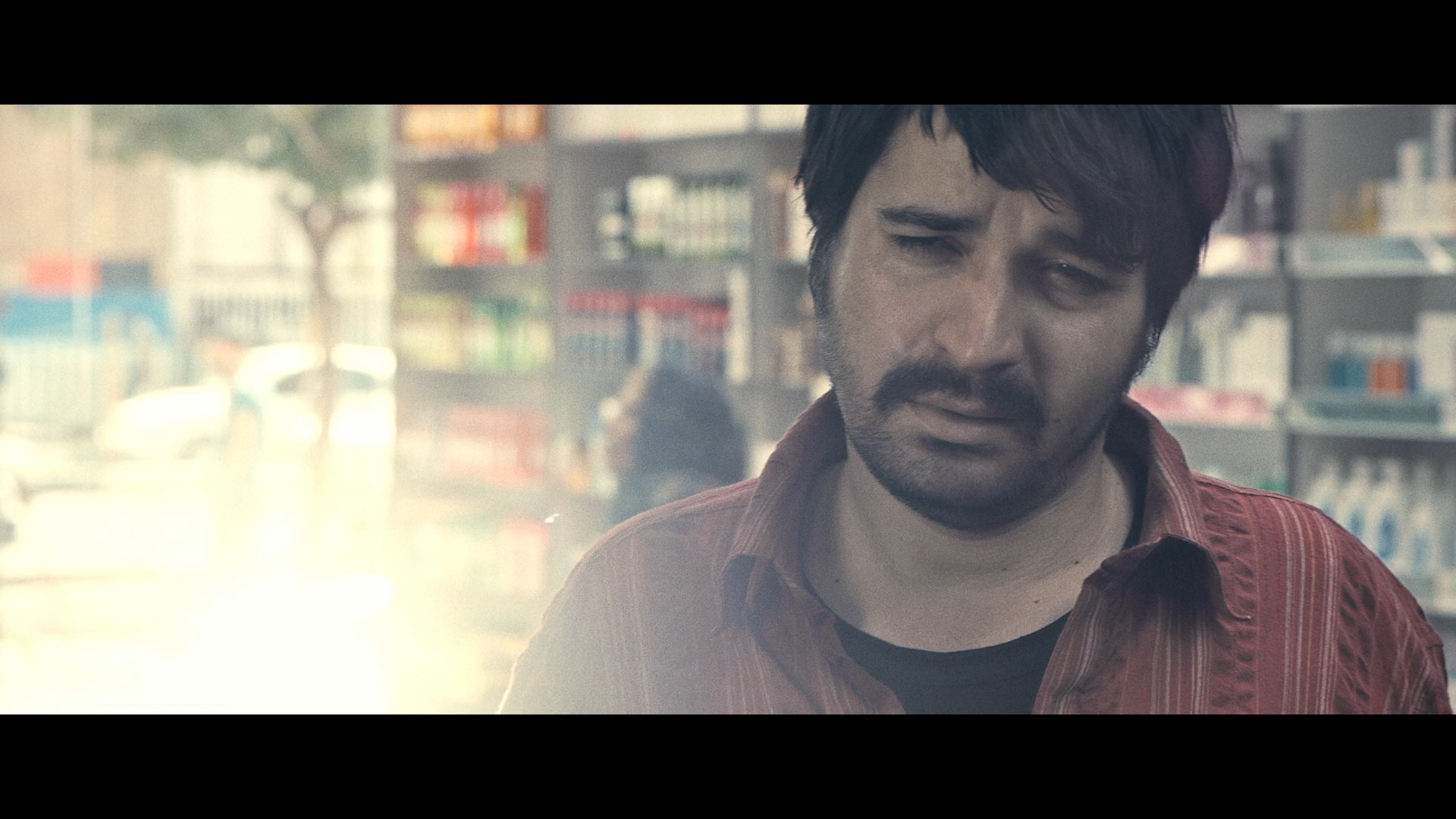 with Careless Crime we get a more traditional editing scene for a
with Careless Crime we get a more traditional editing scene for a 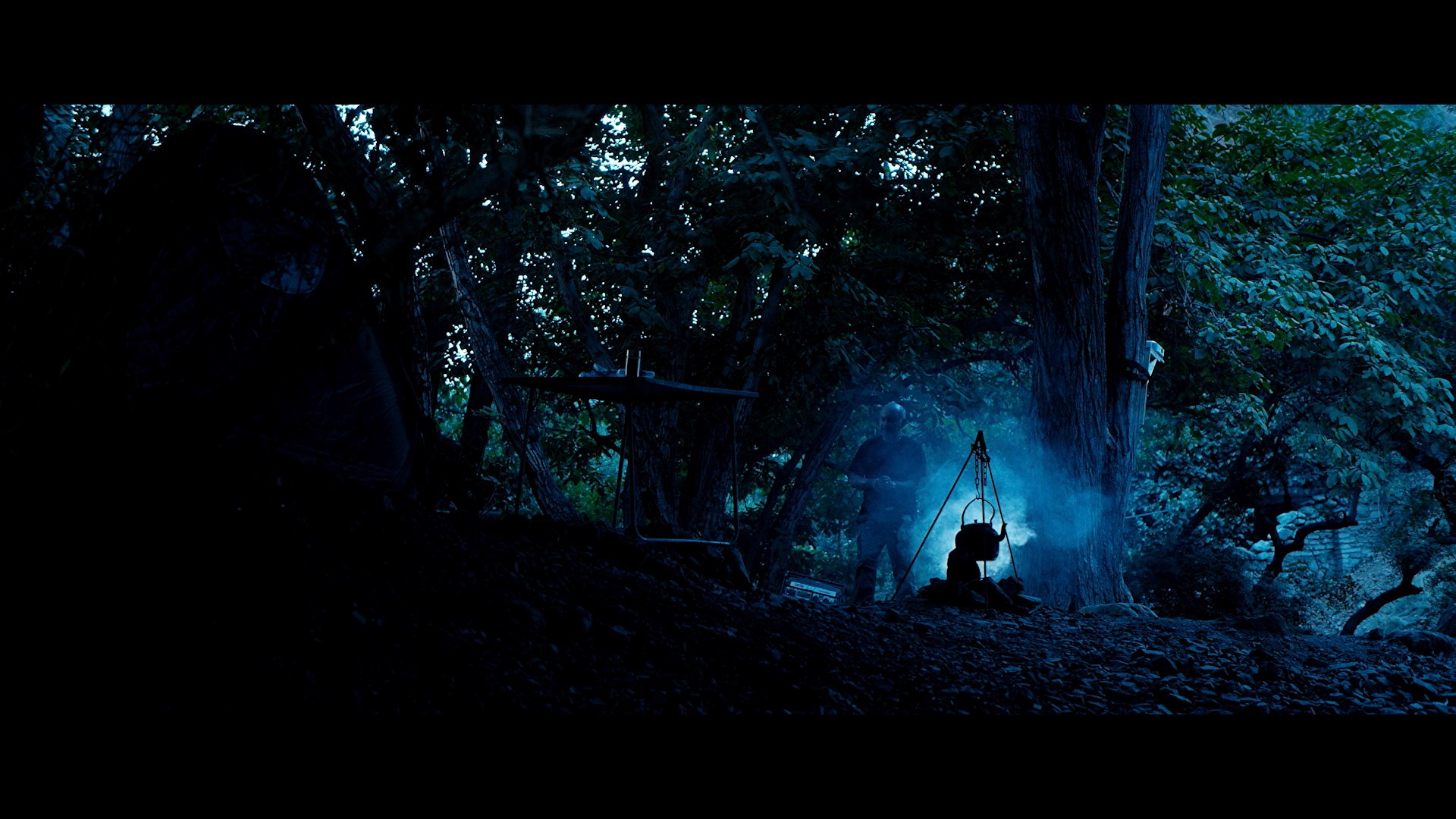 more or less fact-based account that begins with report extracts about a catastrophic movie theater fire that left only eight survivors, with suspicious factors involved like a lack of door handles to escape. Inspired by that 1978 attack, a similar conflagration is planned with arsonist Takbali (Kahani) roped into a plan with three conspirators targeted a dangerously overcrowded screening of a film called... yep, Careless Crime. The film alternates between the theater staff, the audience, the perpetrators, and the film within the film (about soldiers stuck in the desert, or are they?), with the theater's decorations of ephemera from years past echoing the tragedy about the replay itself within the building's walls. A fascinating if challenging film given its epic length, this is a beguiling and unsettling experience if you give yourself over to it with a gradual tension built throughout accentuated by a repetitive electronic score. Also framed at 2.35:1, this has the least aggressive sound mix of the four but the 5.1 mix gets the job done where it counts -- and being the most recent one, it also looks immaculate.
more or less fact-based account that begins with report extracts about a catastrophic movie theater fire that left only eight survivors, with suspicious factors involved like a lack of door handles to escape. Inspired by that 1978 attack, a similar conflagration is planned with arsonist Takbali (Kahani) roped into a plan with three conspirators targeted a dangerously overcrowded screening of a film called... yep, Careless Crime. The film alternates between the theater staff, the audience, the perpetrators, and the film within the film (about soldiers stuck in the desert, or are they?), with the theater's decorations of ephemera from years past echoing the tragedy about the replay itself within the building's walls. A fascinating if challenging film given its epic length, this is a beguiling and unsettling experience if you give yourself over to it with a gradual tension built throughout accentuated by a repetitive electronic score. Also framed at 2.35:1, this has the least aggressive sound mix of the four but the 5.1 mix gets the job done where it counts -- and being the most recent one, it also looks immaculate.